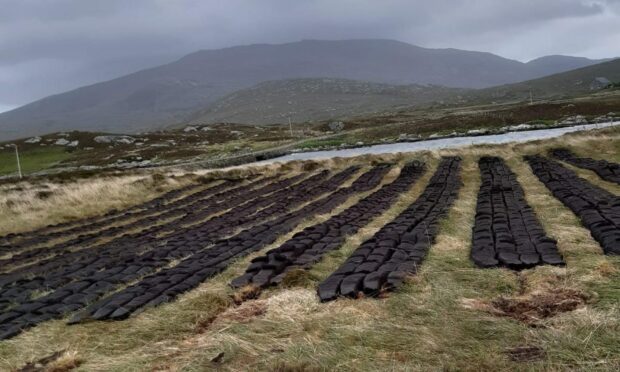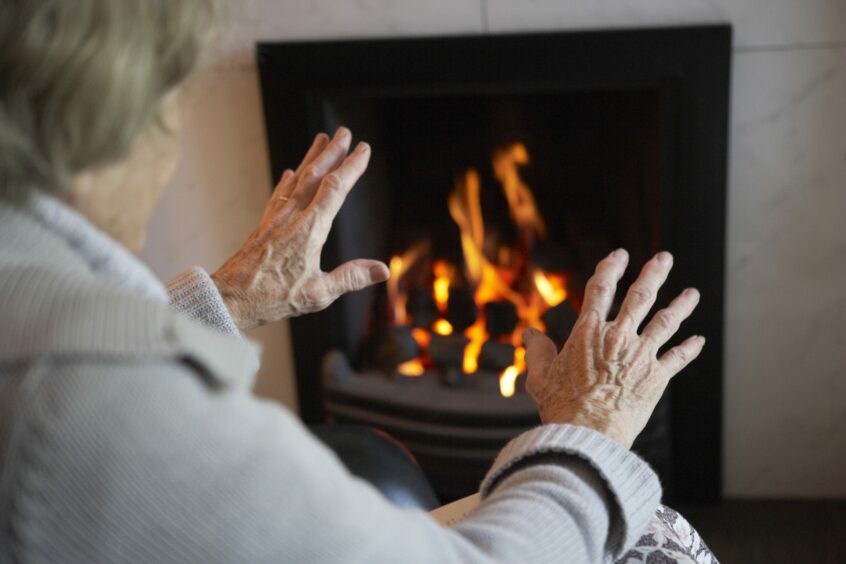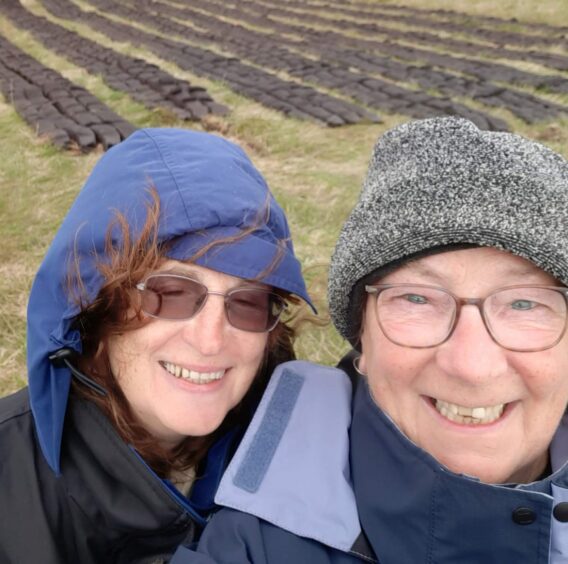The cost-of-living crisis is forcing islanders to go back to burning peat to keep themselves warm.
Ecological concerns mean many people have been dissuaded from using traditional peat fuel.
But now, they say they can’t afford to pay for increased electricity and coal costs.
All over the country, people are having to make tough choices about how to keep warm this winter.
The cost-of-living crisis means many are having to choose between food and heat – and between cold homes and empty pockets.
The Outer Hebrides is one of the areas of Scotland where the crisis is hitting hardest.
40% of households in Na h-Eileanan Siar experience fuel poverty – almost double the national average.
And some of the people struggling the most are those living in the Hebrides’ croft houses.
But, while these buildings – an integral part of Hebridean culture – are particularly prone to draughts and damp, they come with a traditional fuel supply: peat.
Crofters are free to harvest and use the peat on their crofts. Many have stopped because of the hard physical labour involved – and the disproportionate impact on the environment.
Burning peat produces double the amount of carbon dioxide of using natural gases.
‘A massive conflict’
That was certainly a factor for Uist crofter Anne MacLellan, who had never heated her home with peat before this year.
But even as we talk, she’s “got peat on the fire just now”.
It’s been a “massive conflict” for her, she says, and one that underlines how Scottish people are being driven to the brink by rising energy costs.
“Many people locally” will be in the same position, she says, as they fight for “a comfortable winter”.
Ms MacLellan started tracking her fuel spending when she noticed prices climbing.
Even using all the cost-cutting measures she can think of, her energy bills are costing 25% of her wage every month.
Meanwhile, she says that the price of solid fuel has almost doubled.
‘We can’t live cheaper’
“The peat cutting is environmentally bad. I know that, but I can’t afford to pay for increased electricity and coal costs.”
“I spoke to my daughter about it – she’s a senior scientist with Eli Lilly,” she says. “And she was completely against it.”
But, she says, “we can’t live cheaper.”
“You have to weigh it up,” she says. In a world where just 100 corporations cause around 71% of global emissions, “is my wee bit of peat polluting the sky making that much difference?”
It’s a choice that crofters across the islands are making, she says.
‘More people are cutting peat’
“We are wee people trying to do our best to stay warm in a cold place.”
Since her childhood, she’s seen use of peat fuel decline. But she says in the past two years, more people are cutting peat.
She’s seen local kindling suppliers selling out “within a few hours.”
One person who has also turned to peat fuel is her cousin, Mary Margaret Rose.
Ms Rose recently moved from a “fully heated” home in Fort William to “a very drafty, damp, windy house” in Uist.
“It’s a real problem to keep it warm,” she says. “I’m going to have to go for the cheapest option.”
Scottish people shouldn’t have to choose between fuel and the environment, Miss MacLellan says.
“Renewable energy would be wonderful.”
The Outer Hebrides has access to “tons of wind and wave power,” she argues. “Why wasn’t it developed?”
“So much money has been squandered by governments, rather than thinking of infrastructure.”
“Our governments have failed to ensure that UK citizens can keep warm in our northern climate.”
‘So much money has been squandered’
The cost-of-living crisis is one of the biggest challenges islanders are facing this winter. But it’s not the only one – and Ms MacLellan points out that the problems are all interconnected.
For example, she pointed out that, even as local people are encouraged not to use peat fuel, the Scottish Government’s mishandling of the islands’ ferry services force them take more plane journeys, which are worse for the environment.
“It’s like a big jigsaw puzzle, and it hasn’t been put together properly by the ones in charge,” Ms MacLellan says.
“Each individual wee piece – which could be you or me or anyone else – can’t alone fulfill the whole puzzle.”
More local reporting from the Western Isles:


